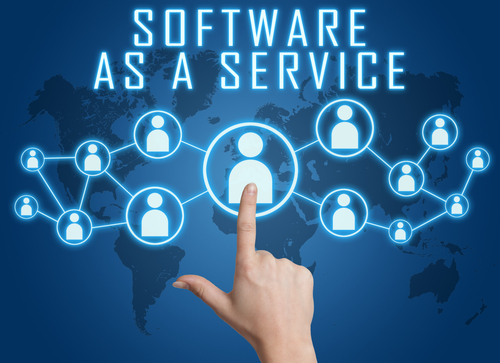By learning as much as possible about potential partners before finalizing agreements, software licensors can significantly minimize downside risk.
 There is no shortage of companies seeking to license software to third parties. Exhibit A: the explosive growth and popularity of software as a service (SaaS) solutions.
There is no shortage of companies seeking to license software to third parties. Exhibit A: the explosive growth and popularity of software as a service (SaaS) solutions.
According to a recent report by Synergy Research Group, the enterprise SaaS market now generates quarterly revenues for software vendors in the neighborhood of $20 billion, with that figure on pace to expand annually by 32%. An optimistic outlook, to be sure, and one shared by the research and advisory firm Gartner, which estimates that SaaS companies will grow to $99.7 billion by 2020.
No question about it, the software market is a healthy one. This is certainly true for the SaaS model – a method of software delivery that allows data to be accessed from any device with an Internet connection and web browser, with software vendors hosting and maintaining servers, databases and code that constitute applications.
SaaS powerhouses include Adobe, Google, Microsoft, Salesforce, Shopify and Workday, not to mention dynamic and quickly growing companies such as DocuSign, HubSpot, ServiceNow, Slack, SurveyMonkey, Zendesk, Zoom and Zuora – success stories all. That being said, more traditional on-premise (perpetual) software delivery is also alive and kicking.
In terms of licensing, a prudent approach remains critical for software firms selling to third-party users – no matter the delivery method. Translation: for prospective licensors, doing their due diligence is essential. That is right, software companies – SaaS or otherwise – in search of a licensing partner must conduct background research and fact-finding regarding prospective licensees and know what to ask before consummating a deal.
With that in mind, this due diligence roadmap should be handy for the would-be software licensor – be it a titan like Microsoft or small-stage start-up. Truth is, though presented in the specific context of software licensing, the following information applies to businesses licensing any type of technology or intellectual property.
What Every Software Firm Should Know Before Agreeing to License a Product
Before signing on the dotted line, software licensors – particularly those contemplating an international footprint – should seek answers from potential licensees to these critical questions.
Briefly describe your company’s licensing history. Have you entered into licenses of similar products in the past? If so, briefly describe them.
A licensee will ideally have experience licensing software similar to that being offered by the licensor. This is relevant because such experience likely demonstrates market knowledge and is a good way to determine whether the licensee has marketing and distribution contacts within the relevant industry. Also, a successful track record licensing comparable goods could indicate a strong industry reputation, which can in turn enhance the licensor’s own reputation. Still, licensors should proceed with caution when dealing with potential licensees that handle competing software, as such dual representation requires significant bandwidth.
Where in the world does your company primarily operate?
Understanding the territorial experience of a prospective licensee is very important for a number of reasons. Among other things, knowledge about domestic markets is key for third-party vendors because different countries – and the territories within them – require different approaches to marketing. By way of example, language translations must be correct and advertising cannot offend local norms and customs. In addition, a licensee’s familiarity with laws in multiple locales can be of great value. Indeed, finding a licensing partner that can help navigate a variety of IP landscapes can be quite helpful in exploiting software to the masses. The same can be said of a company having a long history of licensing software to third parties in places unfamiliar to the licensor. For instance, a licensee that has already penetrated a given country will arguably have a strong grasp of that marketplace and be better prepared to correctly price sales and mitigate risk vis-à-vis its knowledge of the local regulatory framework.
Licensors must remember that IP rights are typically territorial, and the license agreement ultimately entered should specify whether the rights to exploit the subject IP are worldwide or limited to a designated country or countries, region, or other territory.
What percentage of your company’s revenues is generated via third party licensed products or services? Please provide a geographical breakdown of these revenues.
While a description of the countries where a licensee does business may be illustrative of its reach, a comprehensive look at revenue will draw a more complete picture. This is so because a licensee that effectively distributes software in one region may not be so successful in others. As such, an itemization of revenue by territory will flesh out a licensee’s hold on particular markets.
Has your company previously been party to any infringement or third-party claims related to its wrongful, unlicensed or inappropriate use of third party IP? Also, has your company ever been named in a consumer action related to a product or service it has licensed? If so, please describe the actions and the result.
Due diligence is largely about minimizing risk, which is why it is vital for licensors to keep an eye out for obvious red flags like litigation. A prospective licensee that has been a party to several lawsuits – including consumer actions – may simply be incapable of successfully exploiting IP, software included, for the benefit of the licensor. Even more problematic is a licensee’s history of IP infringement actions, which might suggest that it does not adhere to proper IP practices. For its part, consumer litigation can serve to reduce the overall value of underlying IP.
Has a licensor ever previously terminated its license to your company? If yes, please briefly describe the circumstances for the termination.
Just as lawsuits may be a sign of trouble, so too is a history of license terminations. Ideally, a licensor will choose a licensee that can competently market software. A trail of terminations would clearly indicate otherwise.
Please briefly describe your plan for marketing the subject software. Please include the target consumers in this description.
Because financial terms are generally set before a licensing agreement takes effect, understanding a licensee’s marketing plan is necessary to achieve a proper valuation so that a deal will not be worth less than as anticipated at signing.
Please provide projections for sales of the subject software in the coming fiscal year.
Discussions of sales projections are useful for setting quantifiable metrics to be incorporated into a licensing agreement. Clear articulation of performance expectations allows for transparency and enables parties to properly calibrate remedies for potential breaches.
Does your company operate or generate revenue in the People’s Republic of China?
As previously referenced, licensees having some knowledge of domestic markets are best equipped to position a licensor’s software for success. Nowhere is this truer than in China, where a licensee with local experience can help navigate a complex marketplace and cumbersome bureaucracy. No question about it, business in China can be tricky for companies used to western standards, which underscores the necessity of partnering with a licensee that knows the ins and outs of commerce in China (not to mention the languages spoken and written there). A well connected licensee is also beneficial because licensing in China – as a rule – is simpler when companies have a good relationship with local government officials.
When choosing a Chinese business partner, licensors must be hypervigilant. This is particularly true given the country’s relatively weak copyright laws, which is why licensors should inquire whether a potential licensee has infringed upon the IP of others or been named in IP litigation. Licensors looking to penetrate the Chinese market would also be wise to retain local counsel given the intricacies of contract law there as well as the country’s unique legal requirements concerning the assignment of copyrights and software licensing.
The Takeaway for Software Licensors
When it comes to gathering information prior to settling on a prospective licensee, less is certainly not more. For this reason, companies angling to license software must not be shy about asking the questions presented here. Without a doubt, by learning as much as possible about potential partners before finalizing agreements, software licensors can significantly minimize downside risk. Appropriate due diligence is the means to that end. Whether by way of a thorough licensing application or more in-depth background investigation conducted by legal counsel, a licensor’s complete grasp of a licensee’s work, reputation, experience, reach, financial condition, litigation history and potential conflicts of interest will go a long way to ensure a successful licensing relationship.
Image Source: DepositPhotos

![[IPWatchdog Logo]](https://ipwatchdog.com/wp-content/themes/IPWatchdog%20-%202023/assets/images/temp/logo-small@2x.png)

![[Advertisement]](https://ipwatchdog.com/wp-content/uploads/2024/04/Patent-Litigation-Masters-2024-sidebar-early-bird-ends-Apr-21-last-chance-700x500-1.jpg)

![[Advertisement]](https://ipwatchdog.com/wp-content/uploads/2021/12/WEBINAR-336-x-280-px.png)
![[Advertisement]](https://ipwatchdog.com/wp-content/uploads/2021/12/2021-Patent-Practice-on-Demand-recorded-Feb-2021-336-x-280.jpg)
![[Advertisement]](https://ipwatchdog.com/wp-content/uploads/2021/12/Ad-4-The-Invent-Patent-System™.png)







Join the Discussion
One comment so far.
gene
November 13, 2018 11:55 ama home buyer doesn’t ask a home seller if they’d previously been sued for selling a home they didn’t really own. there is something called a title search and title insurance. what about a software licensor? how do they know there is no open source code in their product that will bind a downstream user? who wrote the code? did some chunk of code come from an employee who originally wrote it for a previous employer? have you heard of copyright? jeez.